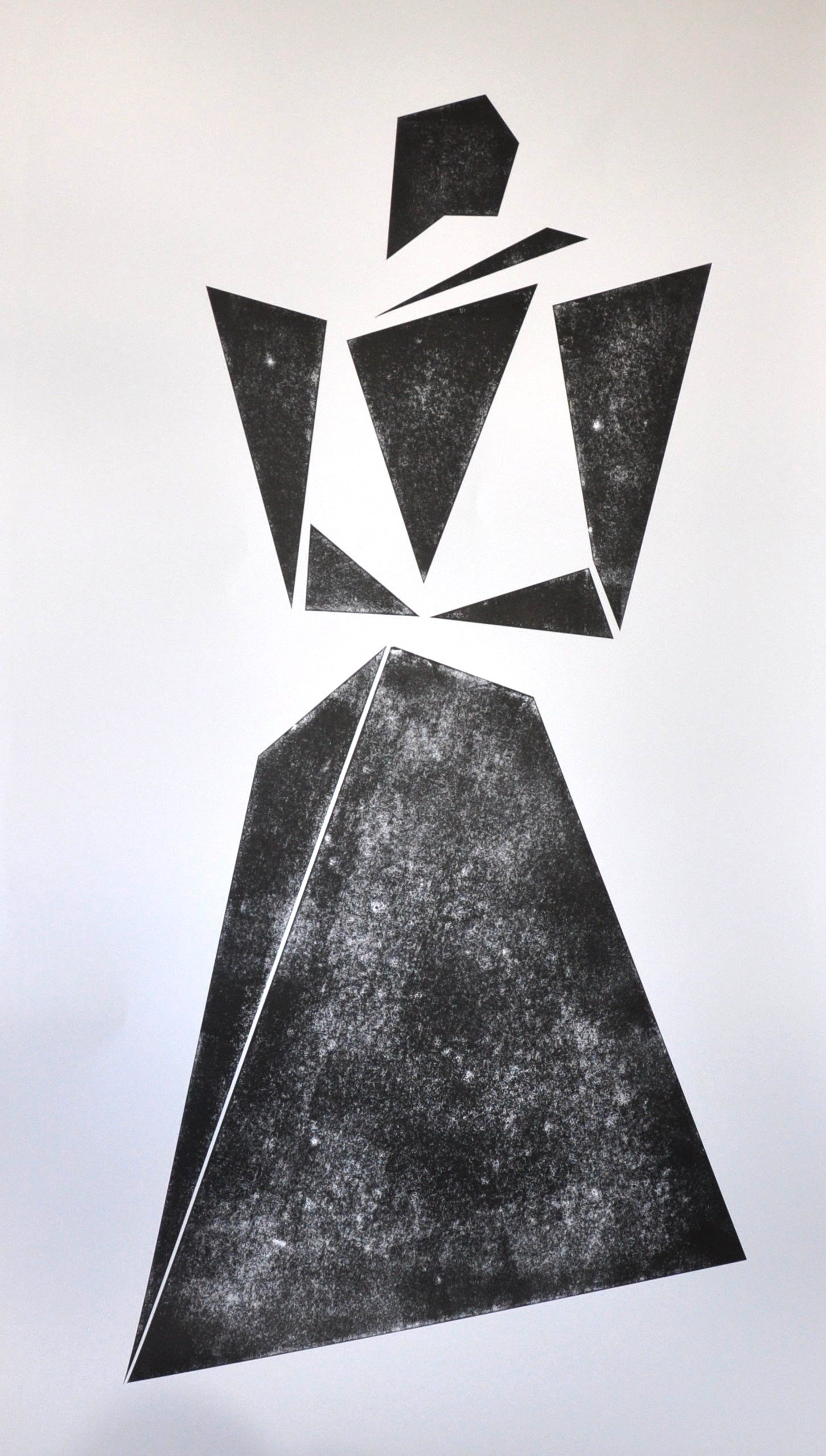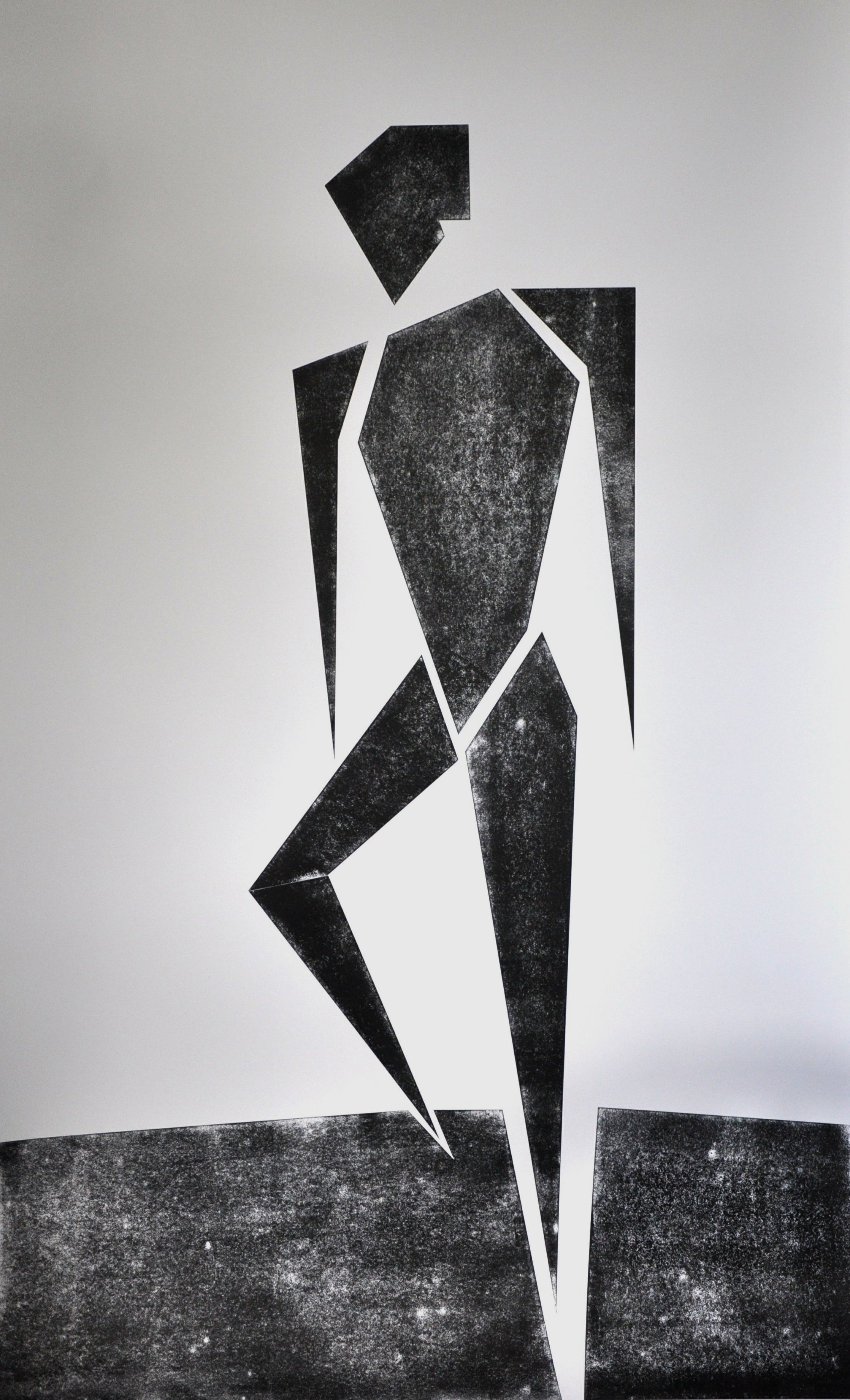In collaboration with the Royal Shakespeare Company and The Globe Theatre, Chandler has crafted a series of rich character studies based on Shakespeare’s play "As You Like It." This play is set in Shropshire. The project was commissioned by Tim Ashton of Soulton Hall through the Soden Collection to celebrate Shakespeare's connection to the manor.
Chandler’s works are characterised by clean black-and-white portrayals, evoking the essence of Tudor England.
The frames for these pieces were carefully sourced from the Shropshire Raby Estate with the kind permission of Lord Barnard. The Raby Estate is located in the ancient Forest of Arden, the very setting of the play and completes the art works’ story. These wooden frames feature coded plugs, which subtly reveal hidden details about the relationships of the characters depicted, adding a layer of depth and intrigue.
The inclusion of coded meaning is a nod to Roland Hill, the significant historical figure who built Soulton Hall and published the Geneva Bible in 1560. Hill, a prominent figure in England’s history, was also a cousin of Shakespeare’s mother, Mary Arden.
Careful scholarship led by James D. Wenn of the consultancy Byrga Geniht Ltd (with support from Christine Schmidle and the Ashton family) has firmly established the long-standing local tradition that Shakespeare's "As You Like It", is set in Shropshire, at Soulton Hall.
Rosalind
In this piece, Chandler features Dame Helen Mirren from the BBC's 1978 production, cleverly referencing Rosalind's cross-dressing as Ganymede. The design subtly implies wide trousers through a full skirt, and the strong pose emphasizes her gender fluidity. This theme is central to "As You Like It," making it a topical play for LGBTQ discussions. Chandler captures this complexity, making Rosalind the most detailed and elaborate of his portrayals. Rosalind is the only character to face the viewer which signifies her confidence and importance within the play. Ultimately, Rosalind marries Orlando.
Orlando
Depicted here reaching up to place his love poems for Rosalind into a tree, Chandler captures the agility and athleticism of Orlando, the youngest son of Sir Rowland de Boys. Orlando's physical prowess, demonstrated by his victory in a wrestling match against a much larger foe and his supremacy in the encounter with a snake and a lioness are highlighted in Chandler’s most athletic pose. Orlando’s character also embodies the whimsy of a romantic idealist, untainted by his brother’s hatred. Despite being mistreated and denied his inheritance by his older brother, Orlando remains courageous, noble, and virtuous. Orlando weds Rosalind.
Celia
Chandler captures the serious, courtly beauty of Celia with her "sad brow" and gentle demeanor. Celia's composure is visually evident, highlighting her ability to navigate the court's complexities. Orlando describes both Celia and Rosalind as “fair and excellent ladies.” Chandler's portrayal underscores Celia's less flamboyant nature than Rosalind, while still reflecting her inner strength. At the end of the play, Celia weds Oliver
Oliver
Chandler’s portrayal of Oliver, the eldest son of Sir Rowland de Boys, creates a sense of discomfort for the viewer. The ambiguity in Oliver's stance—whether he is moving towards or away from the observer—coupled with his sharp, aloof posture, captures the character's spitefulness and duality. The print is also purposefully darker than the others, communicating his sinister character. Oliver transforms from a villain who irrationally hates his brother Orlando, to a redeemed character capable of profound love for Celia (disguised as a shepherdess). This nuanced portrayal highlights Chandler's ability to depict the complexity of Shakespeare's characters.
Audry
Chandler captures Audry in a pose that radiates her innate naivety and unpretentiousness. As a simple goatherd living in the Forest of Arden, Audrey's unselfconscious demeanor stands in stark contrast to the more refined women of the court. Her genuine simplicity and honesty endear her to the audience, while her interactions with the commanding figure of Touchstone, as portrayed by Chandler, further highlight her innocence.
Audrey's rustic charm and sincerity, depicted through her practical attire and unadorned beauty, embody the pastoral innocence that permeates the play. Chandler skillfully underscores this theme, using Audrey as a comedic foil to the sophistication of the other characters.
Touchstone
Drawinng inspiration from David Tennant's 1996 portrayal of Touchstone, capturing the unique role of the fool within the play. Touchstone's ability to make insightful, unrestrained comments—something a serious character could never do—is powerfully conveyed in this portrayal. Chandler emphasises Touchstone's bold presence, giving him significant physical space within the composition. The stick and cloak, distinguishing him from the other male characters, evoke the image of a bullfighter, suggesting his role in provocatively engaging with others while concealing his wisdom behind his guise. The character's duality is highlighted by Chandler’s depiction, showing Touchstone either looking forward over the stick or glancing backward over his shoulder. This dual perspective underscores his keen awareness and ability to see things clearly, enabling him to deliver his witty, often profound remarks with impunity.
Phoebe
Phoebe is depicted on the edge of the page, standing apart from Silvius's earnest advances. Her upright posture conveys an initial sense of pride and indifference to his affections. The distance she maintains from Silvius suggests her reluctance to fully engage with his love, hinting at her inner turmoil and indecision. This hesitation stems from her burgeoning infatuation with Ganymede, who is actually Rosalind disguised as a man. Chandler's interpretation aims to capture Phoebe's inner conflict as she grapples with her emotions and questions her own sexual orientation.
Her attire, simple yet elegant, mirrors her rural surroundings while subtly reflecting her vanity and self-awareness. This portrayal captures Phoebe's complexity as she navigates love and desire, ultimately leading to her growth and self-discovery throughout the play. Eventually she sees Silvius’s merit and the two are wed.
Silvius
Chandler's portrayal of Silvius captures the essence of the lovesick shepherd with a humble, earnest pose. The tilt of his head effectively communicates his deep emotions and lovesick state. His connection to the ground signifies his role as a shepherd, emphasizing his pastoral lifestyle. Silvius’s demeanor exudes a sense of gentle innocence and romantic idealism, setting him apart from the more worldly characters in the play. This depiction highlights Silvius's unwavering devotion and sincerity, reflecting his role as the quintessential pastoral lover whose genuine emotions add depth to the romantic themes of "As You Like It." Silvius’s commitment to Phoebe is eventually rewarded.









